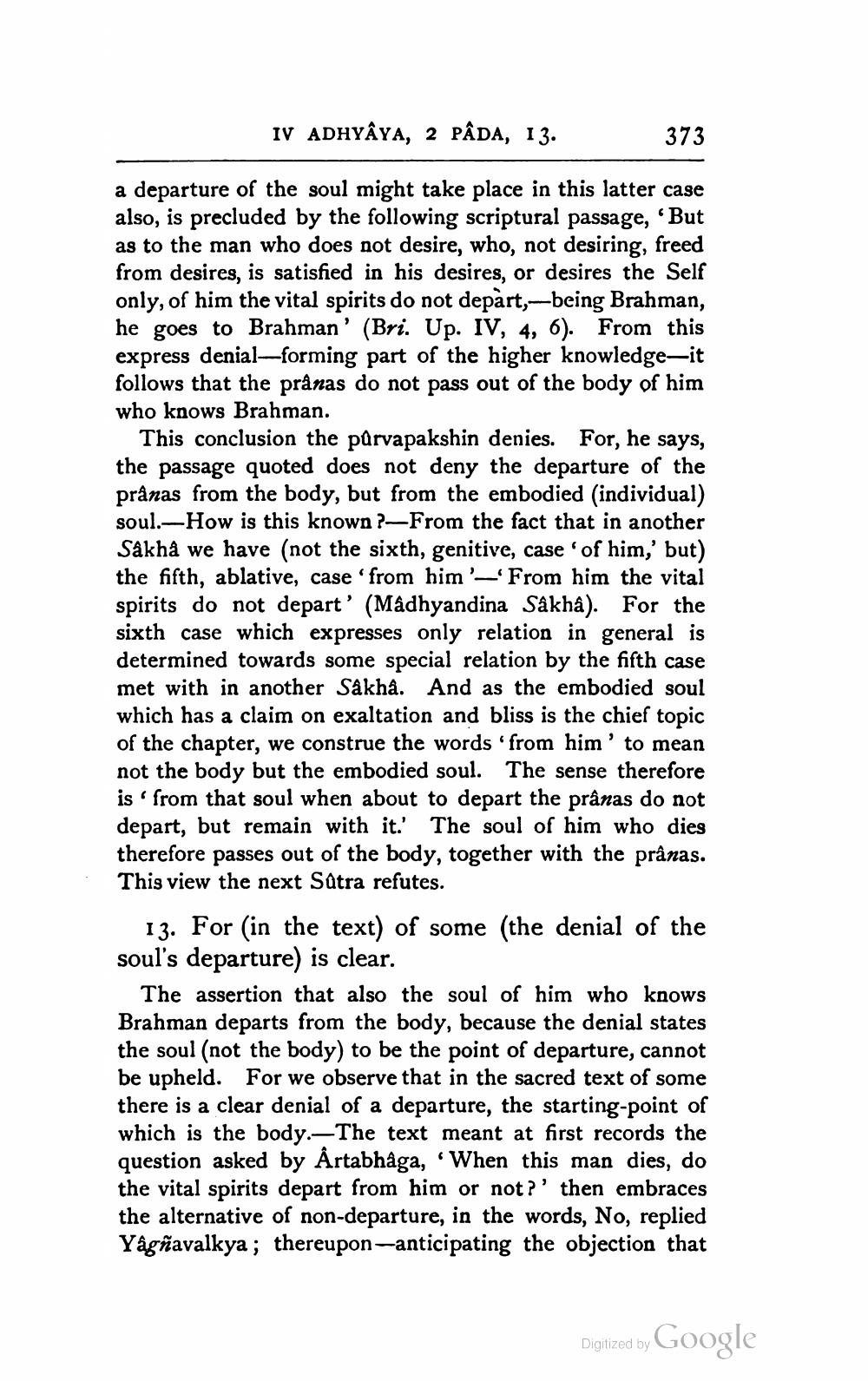________________
IV ADHYÂYA, 2 PÂDA, 13.
373
a departure of the soul might take place in this latter case also, is precluded by the following scriptural passage, But as to the man who does not desire, who, not desiring, freed from desires, is satisfied in his desires, or desires the Self only, of him the vital spirits do not depart,-being Brahman, he goes to Brahman' (Bri. Up. IV, 4, 6). From this express denial-forming part of the higher knowledge-it follows that the pranas do not pass out of the body of him who knows Brahman.
This conclusion the pūrvapakshin denies. For, he says, the passage quoted does not deny the departure of the pranas from the body, but from the embodied (individual) soul.—How is this known ?-From the fact that in another Sakhå we have (not the sixth, genitive, case of him,' but) the fifth, ablative, case from him '-'From him the vital spirits do not depart' (Madhyandina Sâkhâ). For the sixth case which expresses only relation in general is determined towards some special relation by the fifth case met with in another Sakha. And as the embodied soul which has a claim on exaltation and bliss is the chief topic of the chapter, we construe the words 'from him' to mean not the body but the embodied soul. The sense therefore is ' from that soul when about to depart the prânas do not depart, but remain with it.' The soul of him who dies therefore passes out of the body, together with the prânas. This view the next Satra refutes.
13. For (in the text) of some (the denial of the soul's departure) is clear.
The assertion that also the soul of him who knows Brahman departs from the body, because the denial states the soul (not the body) to be the point of departure, cannot be upheld. For we observe that in the sacred text of some there is a clear denial of a departure, the starting point of which is the body.—The text meant at first records the question asked by Årtabhaga, When this man dies, do the vital spirits depart from him or not?' then embraces the alternative of non-departure, in the words, No, replied Yagñavalkya; thereupon-anticipating the objection that
Digitized by
Digized by Google




